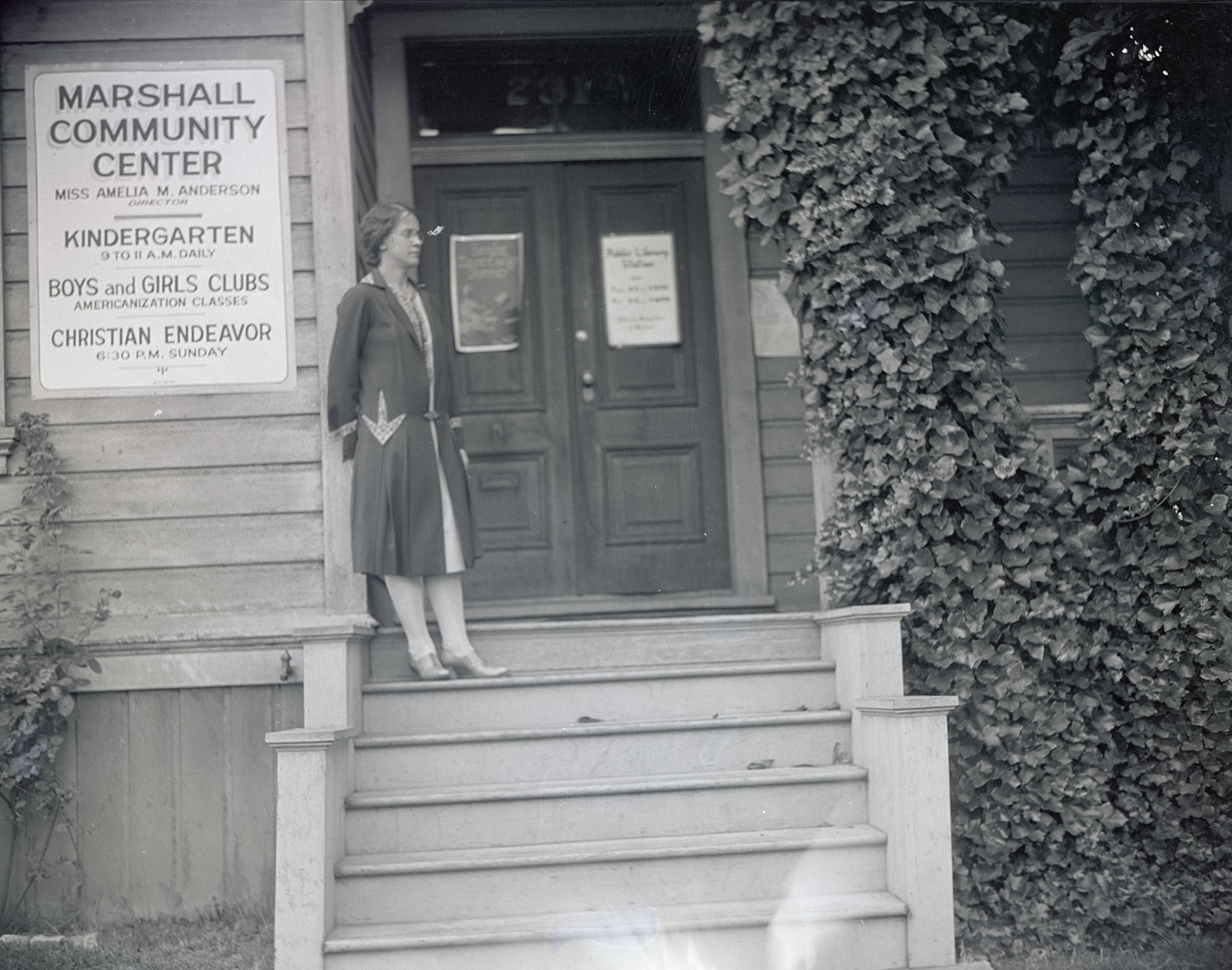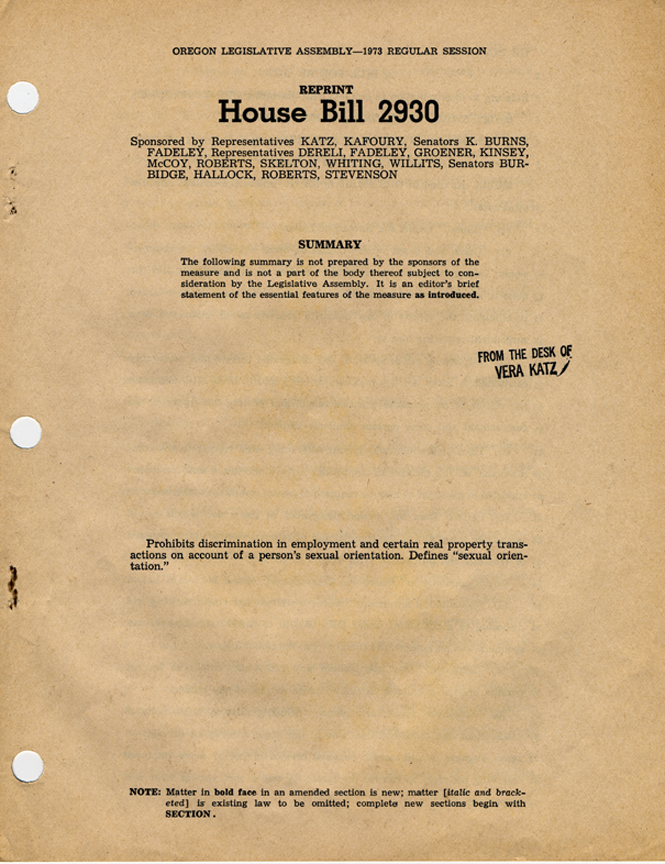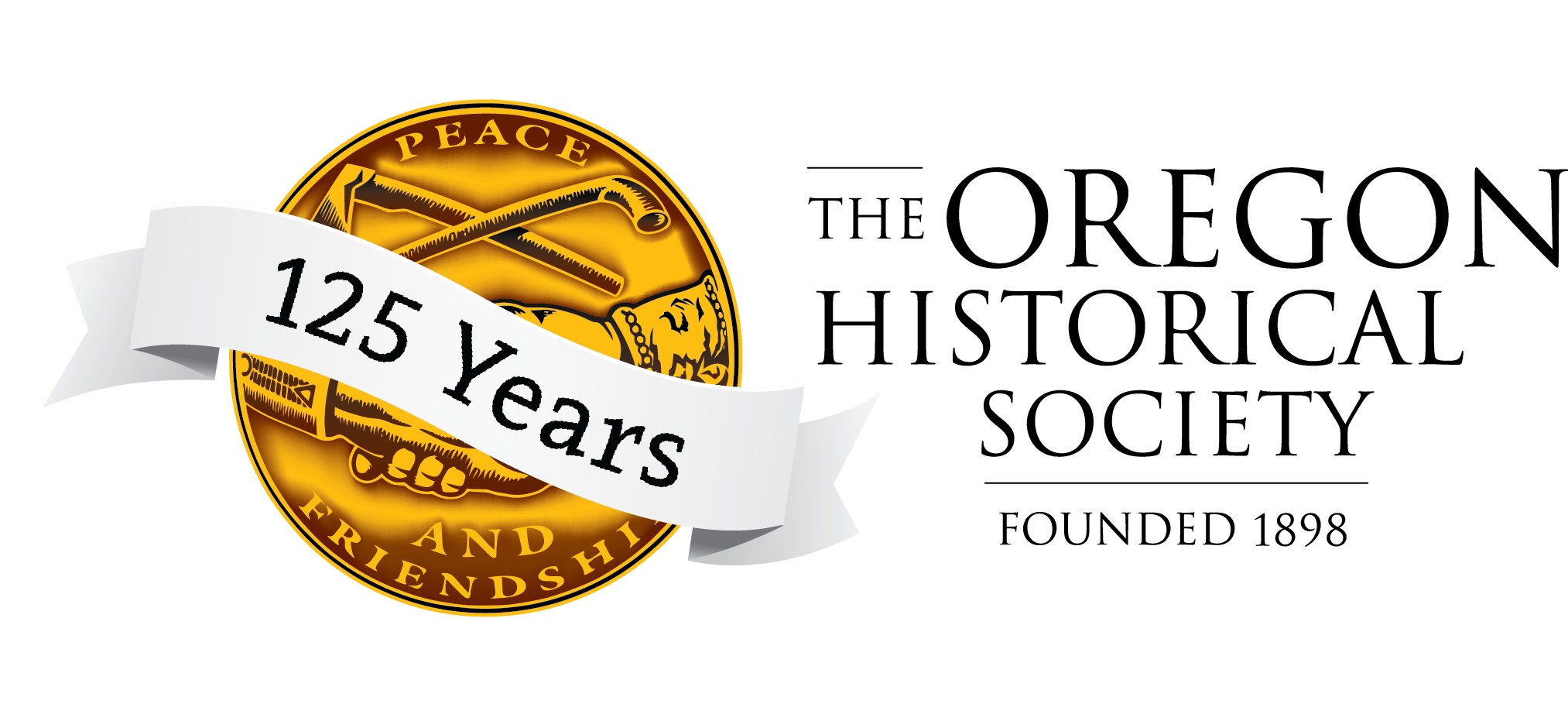The Marshall Street Community Center, founded by the socially minded First Presbyterian Church of Portland, opened in 1926. For more than eighty years, it has taken the lead or partnered with social agencies and industry in serving populations often discriminated against or ignored. Amelia Anderson, the first director of the center (1926-1940), reported "a steady increase in activities" in the early 1930s as residents in northwest Portland lost jobs and faced the despair of the Depression. The center was renamed Friendly House in 1930.
After purchasing the Epworth Methodist Church building on Northwest 26th and Savier Street, First Presbyterian took full ownership of Friendly House in 1940 and moved the center there. William Gearhart, pastor of Lake Grove Presbyterian, was the director (1940-1944) and supervised the renovation of the building.
Until 1954, when United Fund (now United Way) started to supplement First Presbyterian's financial support for the center, Friendly House was staffed by a full-time director and volunteers. The new source of funds made possible the addition of other staff and the expansion of such efforts as support for the fluoridation of water initiative, programs to mentor high school dropouts and to promote traffic safety, and a youth employment service.
In the 1960s, staff and volunteers got in touch with 11,000 senior citizens to explain Medicare and enroll them in the program. Staff also participated in War on Poverty efforts and opened Friendly House doors to programs for pre-delinquent and delinquent youth. At the same time, some members of the governing body of First Presbyterian, the Session, questioned whether the church should continue its support of Friendly House, since "the religious emphasis has been diminished, and the service has been a regular social work program." A specially appointed committee then recommended dissolution in an orderly fashion, but the motion was narrowly defeated in favor of "feeding people according to their needs."
To ensure ongoing involvement by First Presbyterian Church, the Session voted on April 6, 1965, that one-third of Friendly House board members would be selected by the church. The same year, Edd Crawford, pastor of Madrona Presbyterian Church and founder of Madrona Community Center in Seattle, was named executive director; he would serve for ten years.
Crawford had the experience needed. The Madrona Community Center in Seattle offered programs for children of working mothers, counseling and job training for teenagers, a tutoring program, and a preschool. His qualifications also included membership on the Seattle-King County Economics Opportunity Agency, presidency of the Central Area Community Council in Seattle, and membership on the boards of NAACP, Neighborhood House, Inc., and YWCA.
Continuing a long-time emphasis on the needs of the elderly, in 1969 Friendly House started Northwest Pilot Project (NWPP), which supports seniors who are at risk of losing their ability to live independently. NWPP programs included the first Meals-on-Wheels program in Oregon, increased accessibility of Tri-Met bus service for disabled people, assistance to seniors in finding affordable housing and legal assistance, and other advocacy services. NWPP became its own nonprofit organization in 1974.
In 1976, Friendly House and the ESCO Corporation formed a partnership that resulted in the revitalization of the Northwest District neighborhood and the opening of a library branch, a credit union, services for the mentally ill, and before- and after-school childcare services. "Nuts to You," an educational video series, was written and produced by persons with mental illness who were members of Friendly House's Club 53, named for bus line 53, which brought them to the center. "Friendly Chaps," begun in 1982 and serving 250 students, is a full-service enrichment program, offering students help with homework and clubs for those interested in gardening, photography, theater, and music.
In January 1994, Friendly House opened a new community center building to serve as a "living room for Northwest Portland, where neighbors could gather, play, study, and work." The Friendly House Preschool, now a part of Portland's Children Investment Fund, makes it possible for children from low-income families to attend free.
Friendly House adopted the Elder Resource Alliance (ERA) into its programs for seniors in 2005. ERA is a coalition of organizations of gay, lesbian, and bisexual elders who live in the four-county metropolitan Portland area. Other adult services include educational classes and physical fitness activities.
True to its mission, Friendly House—with the support of First Presbyterian Church—has helped create a thriving community by connecting people of all backgrounds and ages through recreational, educational, and other life-sustaining services during the last eight decades.
With a staff of 45 and 500 volunteers in a year, Friendly House served 60,000 people in 2009. In addition, 250 children participated in after-school programs, 50 in preschool, and approximately 600 persons in 40 different classes offered during a year.
-
![]()
Amelia Anderson outside Marshall Street Community Center, now Friendly House, Portland, 1923.
Oregon Historical Society Research Library, 371N0038 -
![]()
Amelia Anderson, 1923.
Oregon Historical Society Research Library, 371N0039 -
![]()
Epworth United Methodist Church, Portland.
Creative Commons use
Related Entries
-
![Epworth United Methodist Church (Portland)]()
Epworth United Methodist Church (Portland)
From its beginnings as a mission in the late 1890s, Epworth United Meth…
-
![First Presbyterian Church (Portland)]()
First Presbyterian Church (Portland)
First Presbyterian Church of Portland, organized in January 1854 just t…
-
![Gay and lesbian rights movement]()
Gay and lesbian rights movement
Before Stonewall Before New York’s Stonewall Riots in 1969, the histor…
Map This on the Oregon History WayFinder
The Oregon History Wayfinder is an interactive map that identifies significant places, people, and events in Oregon history.
Further Reading
MacColl, E. Kimbark. The Growth of a City: Power and Politics in Portland, Oregon, 1915-1950. Portland, Ore.: Georgian Press, 1979.








